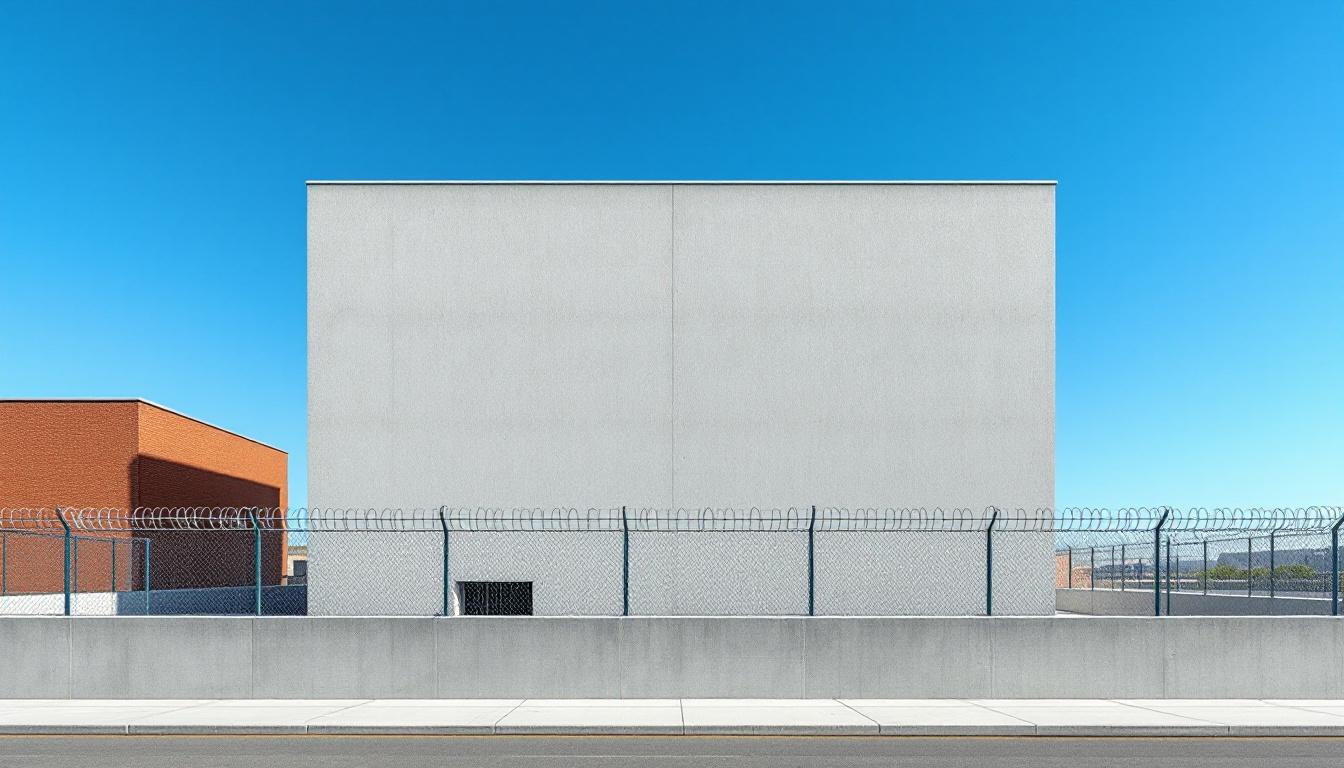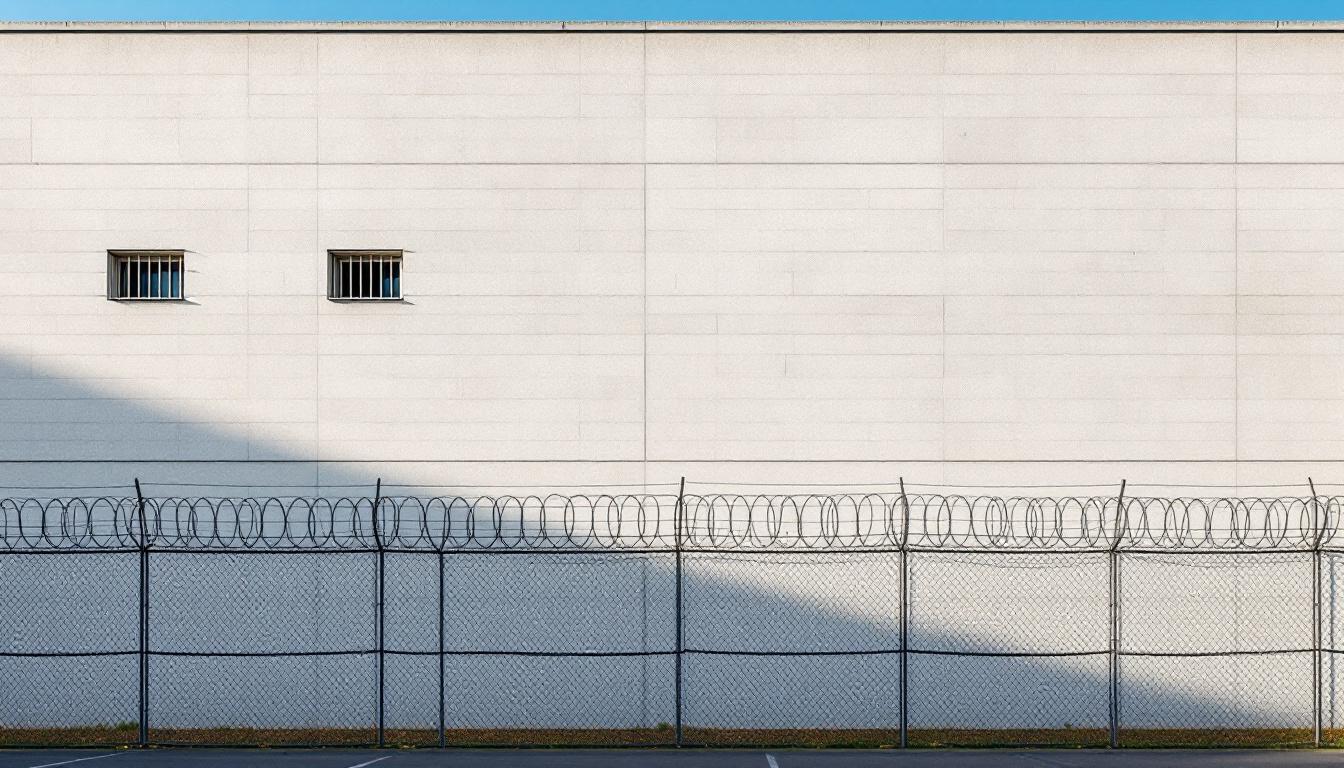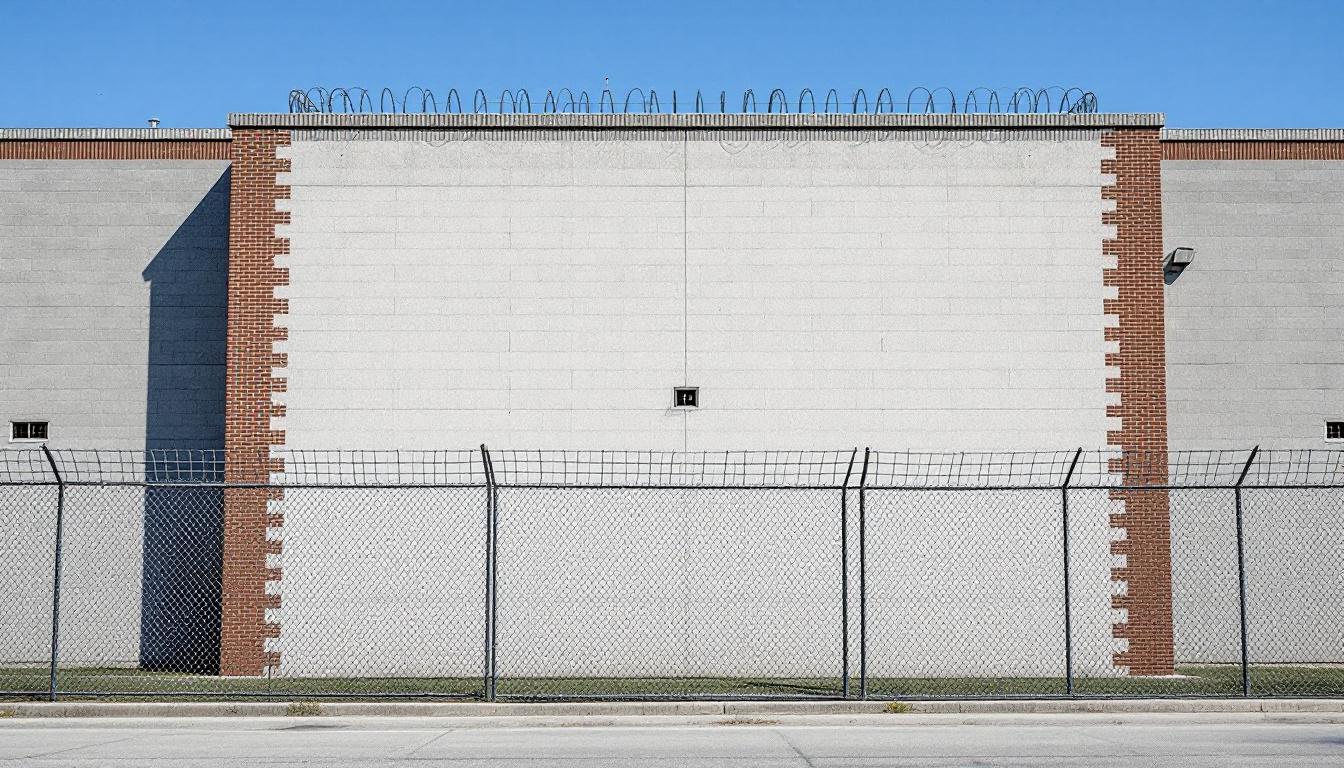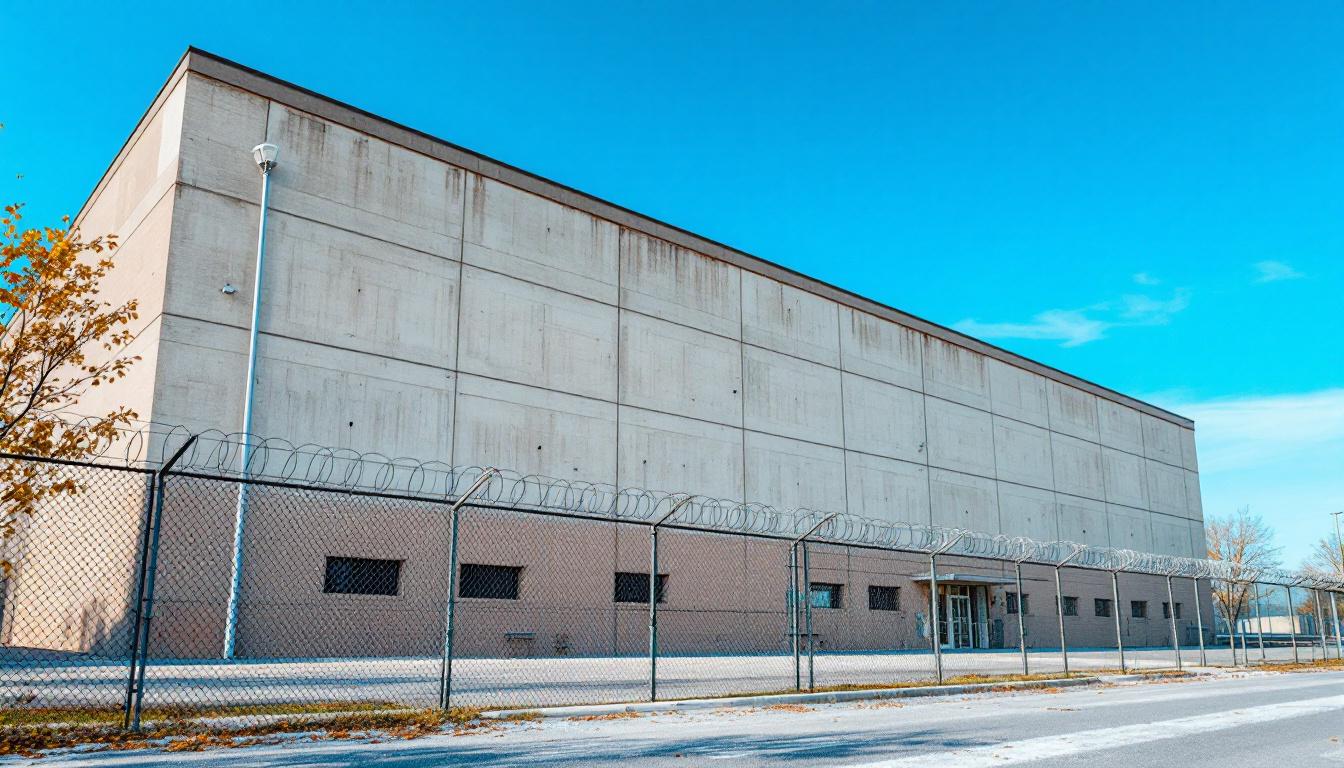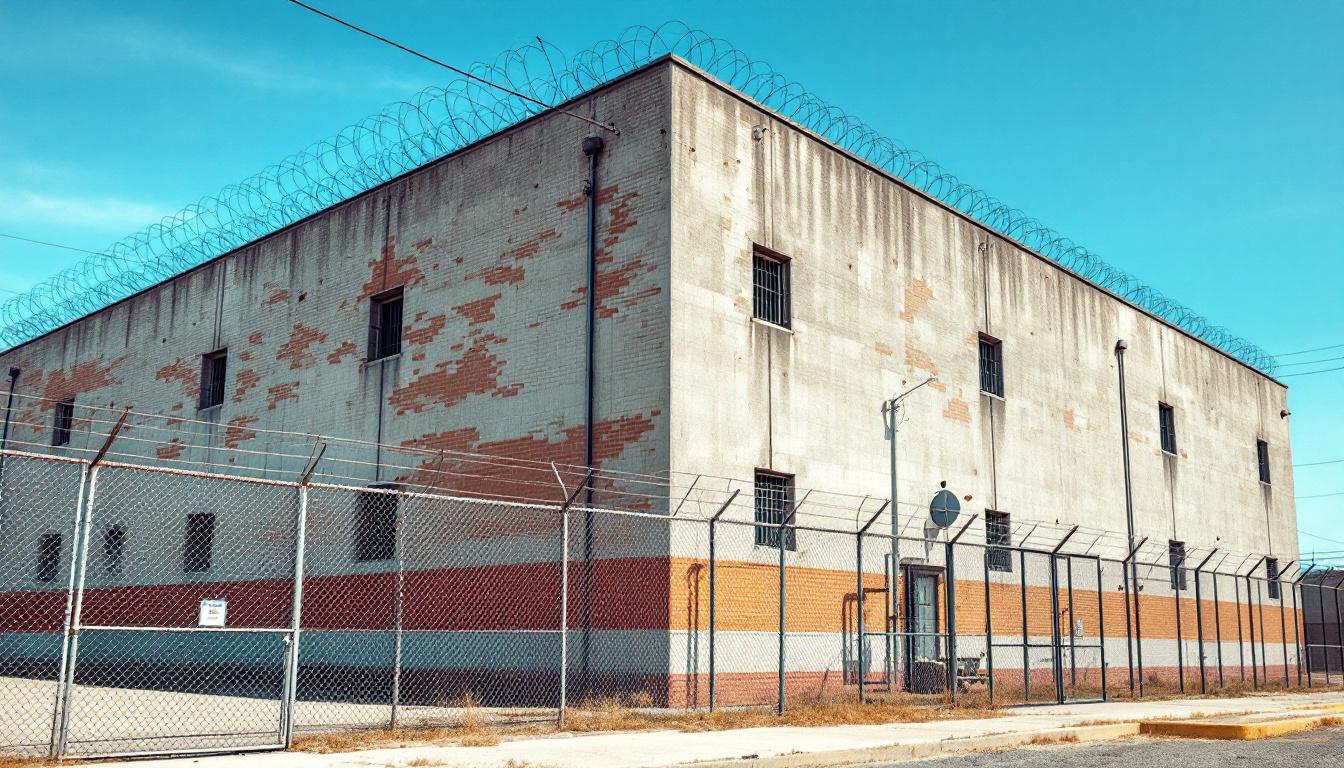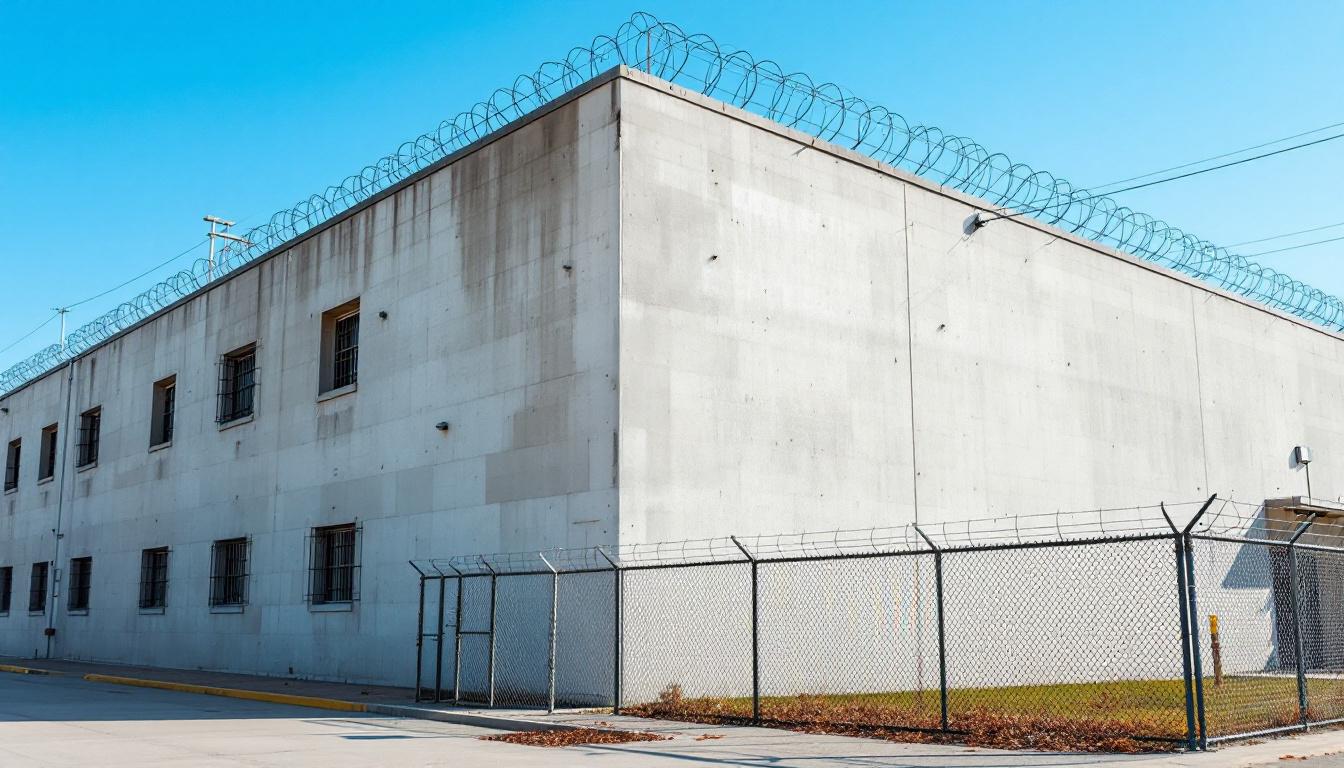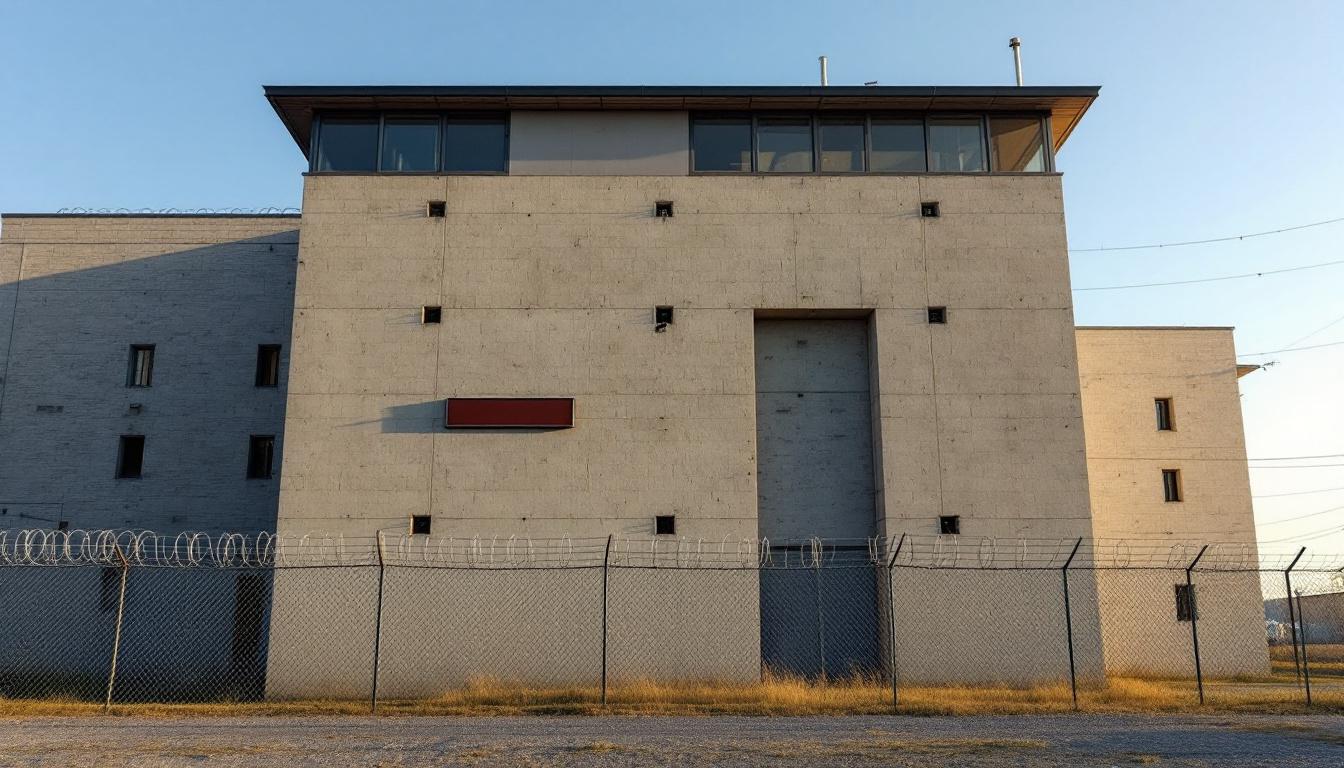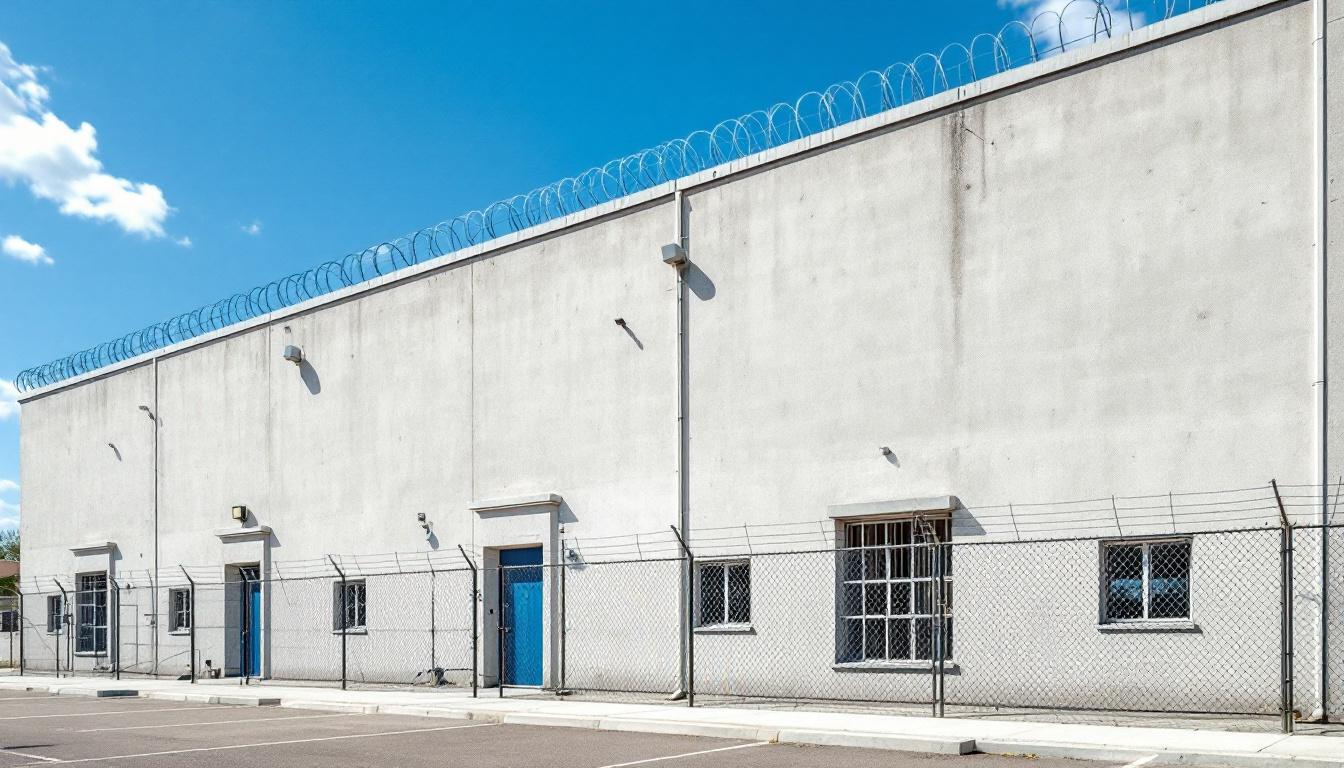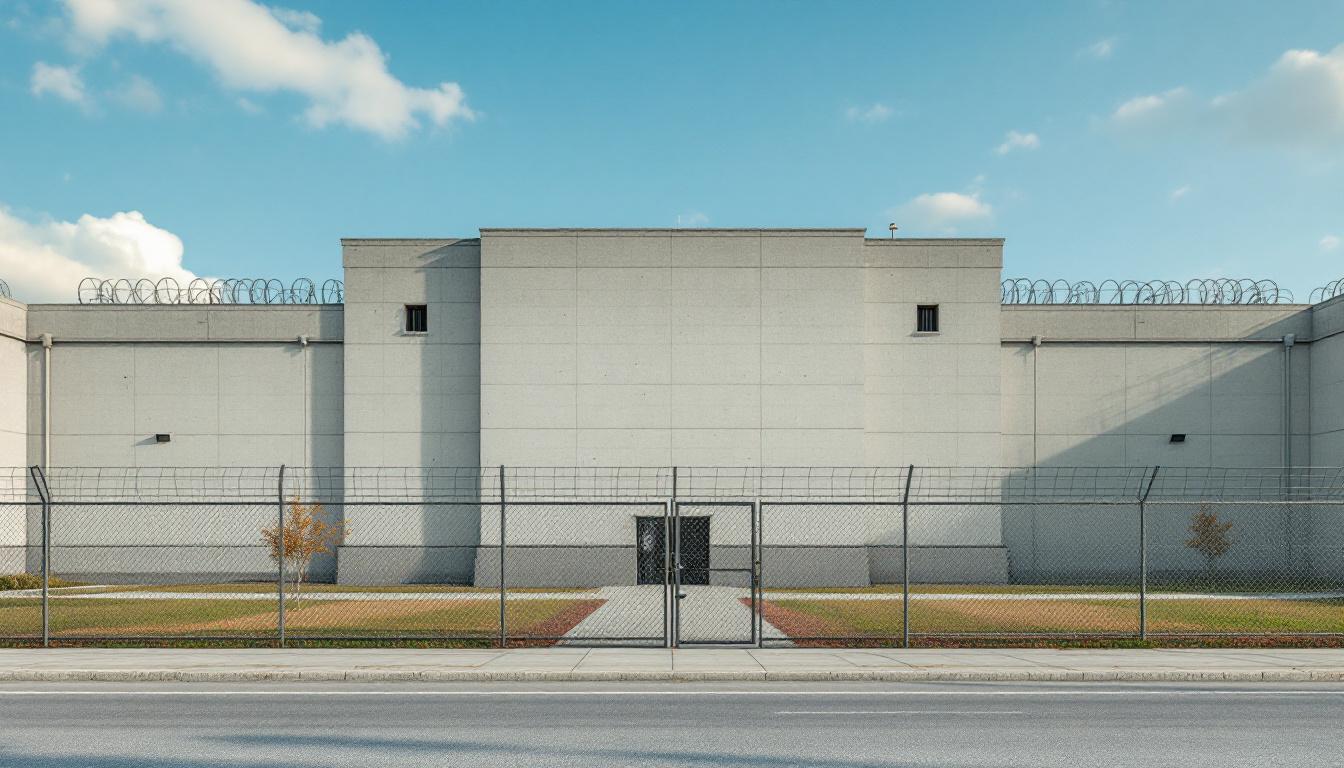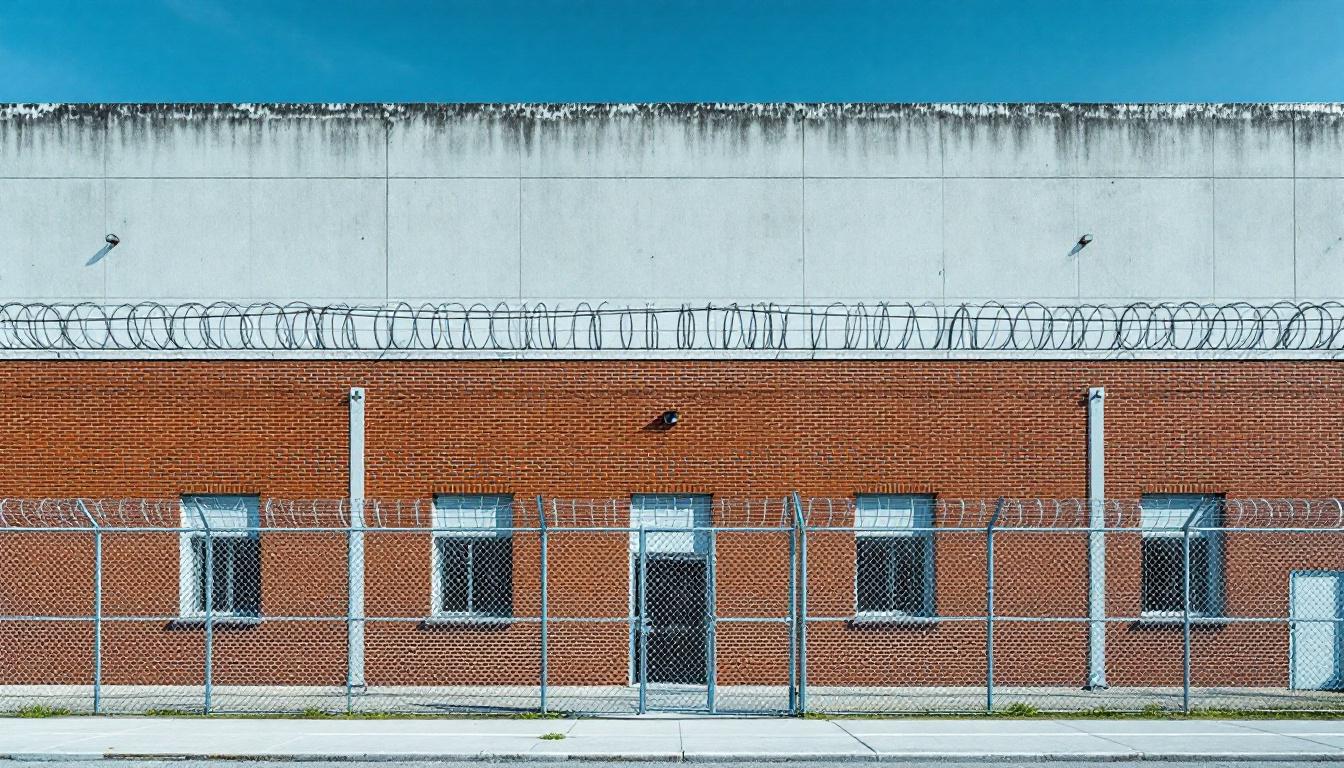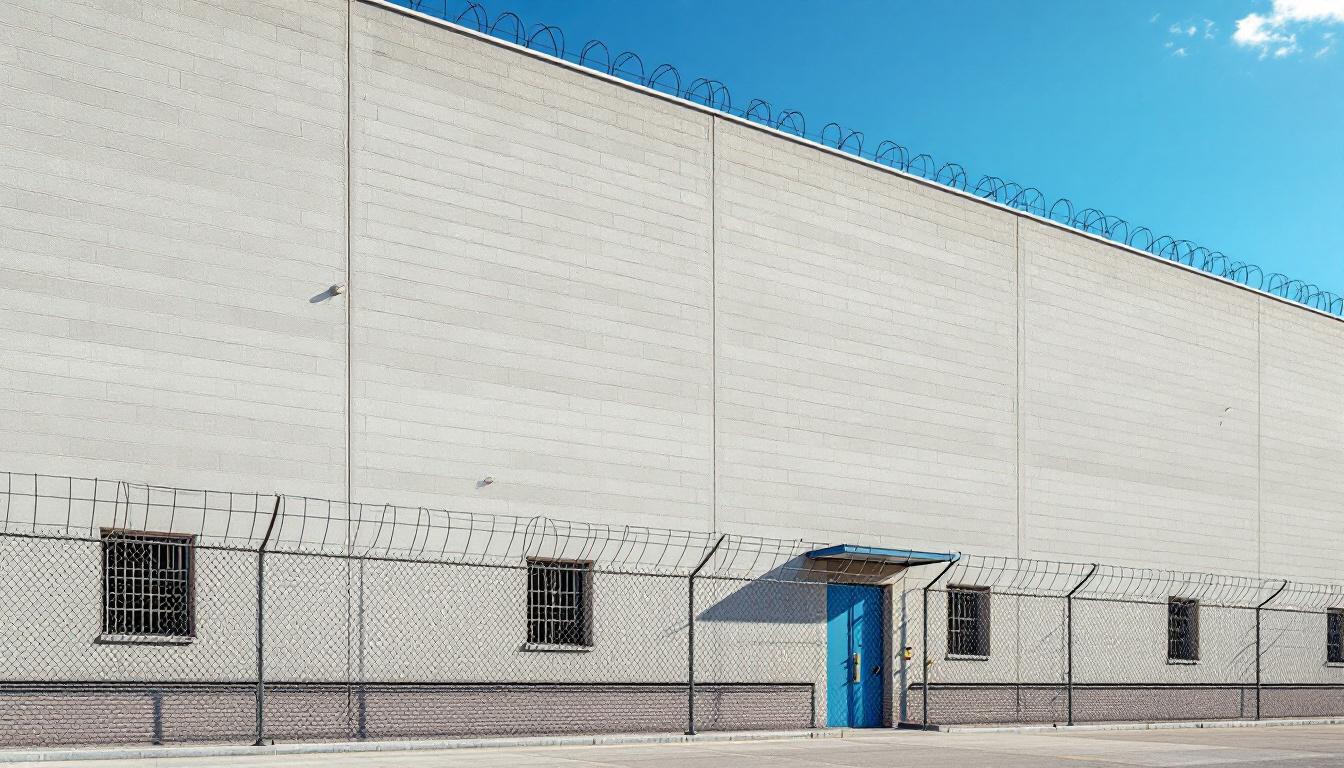
Quick Navigation
How to contact an inmate at Howard County Department of Corrections
This comprehensive guide will walk you through how to connect with an inmate at Howard County Department of Corrections. Follow the steps below to find an inmate and send letters and photos:
- Search for the inmate using our search tool below
- Create your account or log in to Penmate
- Write your message (up to 6,000 characters)
- Send instantly - inmates receive printed copies daily
Find an Inmate
Search for an inmate to start communicating today
Tip: You can search by first name, last name, or inmate ID number
To contact a person at Howard County Department of Corrections start by searching for the person on the official facility website. Perform a search by following these steps:
- Step 1: Enter their first name and last name into the search form and click "Search"
- Step 2: Locate their inmate record
- Step 3: Write down their Inmate ID and any housing information provided
Important! Be sure to enter the person's full name. Nicknames should not be used.
How to Send Messages to Inmates

You can use your phone or computer to send emails, letters, and photos to an inmate. Messages are sent electronically to inmate tablets or kiosks at the facility. If you would like to send a message, start by searching for an inmate at Howard County Department of Corrections.
Sending Photos and Postcards

A great way to send love and support to a loved one at Howard County Department of Corrections is to send photos and postcards. It only takes a few minutes to send photos from your phone and it makes a huge difference. You can also mail postcards with words of support and inspiration, or design your own postcard for special moments like birthdays and holidays.
Important! Be sure not to send any explicit photos or they may not be approved by the facility. You can also use a photo printing app like Penmate to make sure your photos are printed at the correct size (4x6 or 3x5) and are mailed according to the rules and regulations of Howard County Department of Corrections.
Frequently asked questions about Howard County Department of Corrections
-
How long does it take to deliver a message?
If you're sending an email message your letter is usually delivered within 24-48 hours. For messages sent via mail you should expect delivery within 3-7 days. All messages will need be approved by Howard County Department of Corrections.
-
How much does it cost to send a message to Howard County Department of Corrections?
You can send a message free using your phone or mail a message via USPS for the price of a $0.60 stamp and envelope. You can also purchase credits or e-stamps from services starting at $1.99.
-
What services can I use to contact an inmate at Howard County Department of Corrections?
Penmate
You can use Penmate to send letters and photos to an inmate from your phone. It's an easy way to stay in touch during your loved one's incarceration. Use the inmate locator to find an inmate's location and contact information, then you can send messages within a few minutes.
Securus messaging
Securus may be another option for communicating with an inmate at Howard County Department of Corrections. You can create a friends and family account and purchase credits to send messages. All messages will be reviewed and must be approved by the facility.
JPay
Some county jails and state prisons may support sending messages with JPay. You must register an account with the system, find your loved one, and purchase stamps to send messages. For some locations you can also attach photos.
Smart Jail Mail
You may also check if Smart Jail Mail is available at Howard County Department of Corrections. Smart Jail Mail is operated by Smart Communications and has contracted with some state and county jails. After purchasing credits, your messages and photos are sent to the facility, printed out, and then handed out to your loved one.
-
What is the mailing address of Howard County Department of Corrections?
Mailing address:
Howard County Department of Corrections
7301 Waterloo Rd
Jessup, MD 20794
Phone: (410) 313-5200Business hours:
- Monday: Open 24 hours
- Tuesday: Open 24 hours
- Wednesday: Open 24 hours
- Thursday: Open 24 hours
- Friday: Open 24 hours
- Saturday: Open 24 hours
- Sunday: Open 24 hours
-
What are the visiting hours at Howard County Department of Corrections?
Visiting hours at Howard County Department of Corrections vary by housing unit and security level. Generally, visits are scheduled on weekends and holidays, with some facilities offering weekday visits. Contact the facility directly at (410) 313-5200 or check their website for the current visiting schedule. Visits typically last 30-60 minutes and must be scheduled in advance.
-
What items are prohibited when sending mail to Howard County Department of Corrections?
Prohibited items typically include: cash, personal checks, stamps, stickers, glitter, glue, tape, staples, paperclips, polaroid photos, musical or blank greeting cards, hardcover books, magazines with staples, and any items containing metal or electronics. Only send letters on plain white paper with blue or black ink. Photos must be printed on regular photo paper (no Polaroids). Always check with Howard County Department of Corrections for their specific mail policies.
-
How do I send money to an inmate at Howard County Department of Corrections?
You can send money to an inmate at Howard County Department of Corrections through several methods: 1) Online using JPay, Access Corrections, or the facility's approved vendor, 2) Money orders mailed directly to the facility with the inmate's name and ID number, 3) Kiosks located in the facility lobby, or 4) Over the phone using a credit or debit card. Fees vary by method, typically ranging from $2.95 to $11.95 per transaction.
-
Can I schedule a video visit with an inmate at Howard County Department of Corrections?
Many facilities now offer video visitation as an alternative to in-person visits. At Howard County Department of Corrections, video visits may be available through services like Penmate, Securus Video Connect, GTL, or ICSolutions. Video visits typically cost $10-20 for 20-30 minutes and must be scheduled in advance. You'll need a computer or smartphone with a camera and reliable internet connection. Contact the facility for their specific video visitation policies and approved vendors.
-
What identification do I need to visit an inmate at Howard County Department of Corrections?
All visitors must present valid government-issued photo identification such as a driver's license, state ID, passport, or military ID. Minors must be accompanied by a parent or legal guardian who can provide the minor's birth certificate. Some facilities require visitors to be on the inmate's approved visitation list, which may require a background check. Contact Howard County Department of Corrections for specific ID requirements and visitor approval procedures.
-
How can I find out an inmate's release date?
To find an inmate's release date at Howard County Department of Corrections, you can: 1) Use the online inmate search tool if available, 2) Call the facility's records department, 3) Contact the inmate's case manager or counselor, or 4) Have the inmate provide this information during a call or visit. For privacy reasons, some facilities only release this information to immediate family members.
Facility Overview
Contact Information
Howard County Department of Corrections7301 Waterloo Rd
Jessup, MD 20794
Phone: (410) 313-5200
Official Website
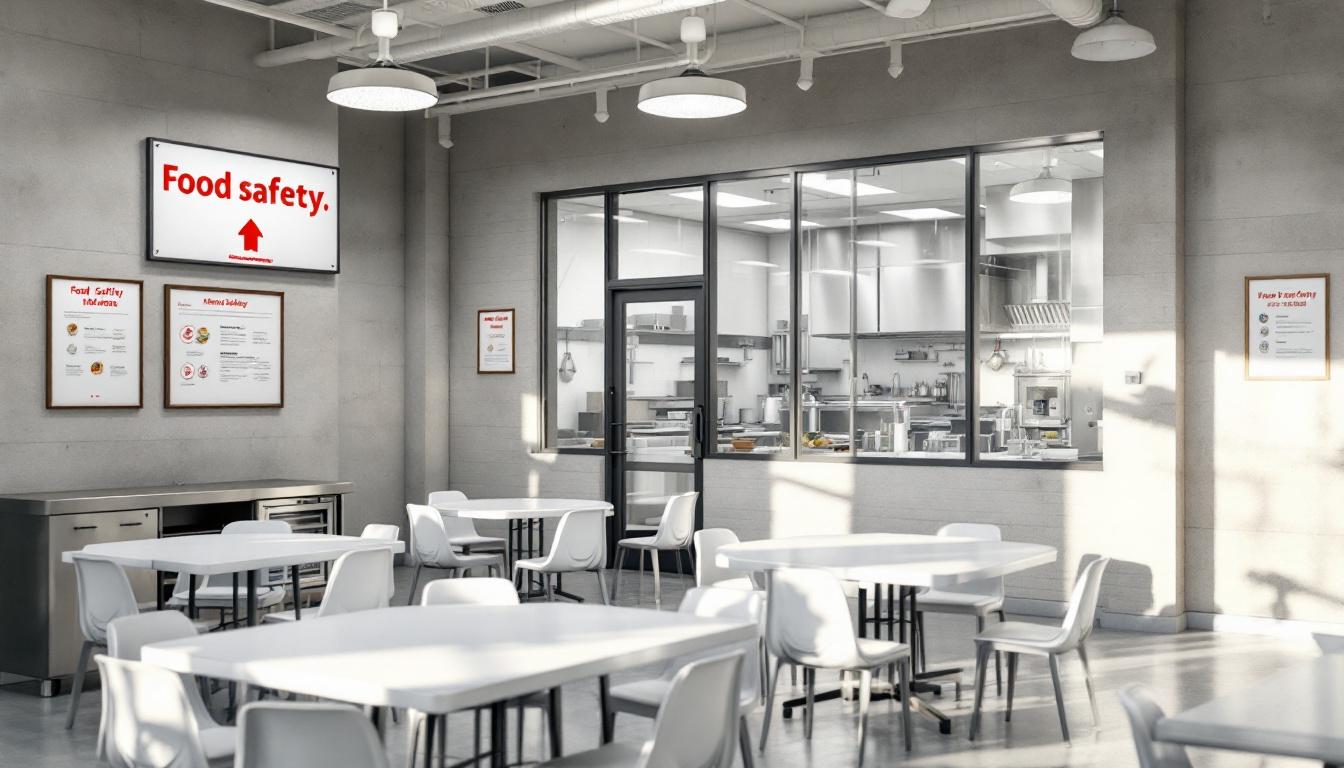
About Howard County Department of Corrections
Detention centers serve as crucial bridges between arrest and resolution, functioning as temporary housing facilities where individuals await trial or sentencing while maintaining essential connections to their communities. Within this framework, the Howard County Detention Center, MD operates as a vital component of Maryland's correctional infrastructure, strategically positioned in Jessup to serve both local residents and the broader regional justice system.
Programs designed to maintain family bonds and community ties typically form the foundation of effective detention operations, recognizing that successful outcomes depend heavily on preserving these critical relationships during periods of incarceration. The facility generally emphasizes services that support both immediate needs and longer-term reintegration goals, often including educational opportunities, substance abuse counseling, and mental health support. These initiatives reflect a comprehensive approach to addressing the underlying factors that may contribute to criminal behavior, while simultaneously preparing individuals for their eventual return to the community.
The detention center's role in promoting public safety extends beyond secure housing to encompass rehabilitation-focused programming that may include vocational training, life skills development, and family reunification services. Located within Maryland's correctional network, the facility typically coordinates with local courts, social services, and community organizations to ensure continuity of care and support. This collaborative approach often results in more effective transitions back into the community, ultimately contributing to reduced recidivism rates and enhanced public safety outcomes throughout the region.
Programs & Services
Through comprehensive programming designed to address individual needs, the Howard County Detention Center, MD creates pathways for personal growth and positive change. The facility's approach centers on providing meaningful opportunities that help the population develop essential skills while maintaining connections to their families and communities. These programs typically emphasize practical preparation for successful reintegration, recognizing that supportive services during incarceration can significantly impact long-term outcomes.
Educational and vocational programs form a cornerstone of the facility's offerings, providing the population with tools for future stability. Educational services may supply basic literacy instruction, GED preparation, and adult learning opportunities that help participants complete their educational goals. Moreover, vocational training programs often include practical skill development in areas such as construction trades, food service, and maintenance work. These programs typically focus on building marketable skills that can lead to employment opportunities upon release.
Therapeutic services and wellness programs address the broader needs of the population through comprehensive support systems. Counseling services may include individual and group therapy sessions that help participants address underlying issues and develop healthy coping strategies. Religious services often provide spiritual guidance and community connection for those seeking faith-based support during their incarceration. Additionally, wellness programs typically encompass mental health resources, substance abuse counseling, and life skills training that prepare individuals for successful community reentry while strengthening family relationships and personal responsibility.
Daily Life & Visitation
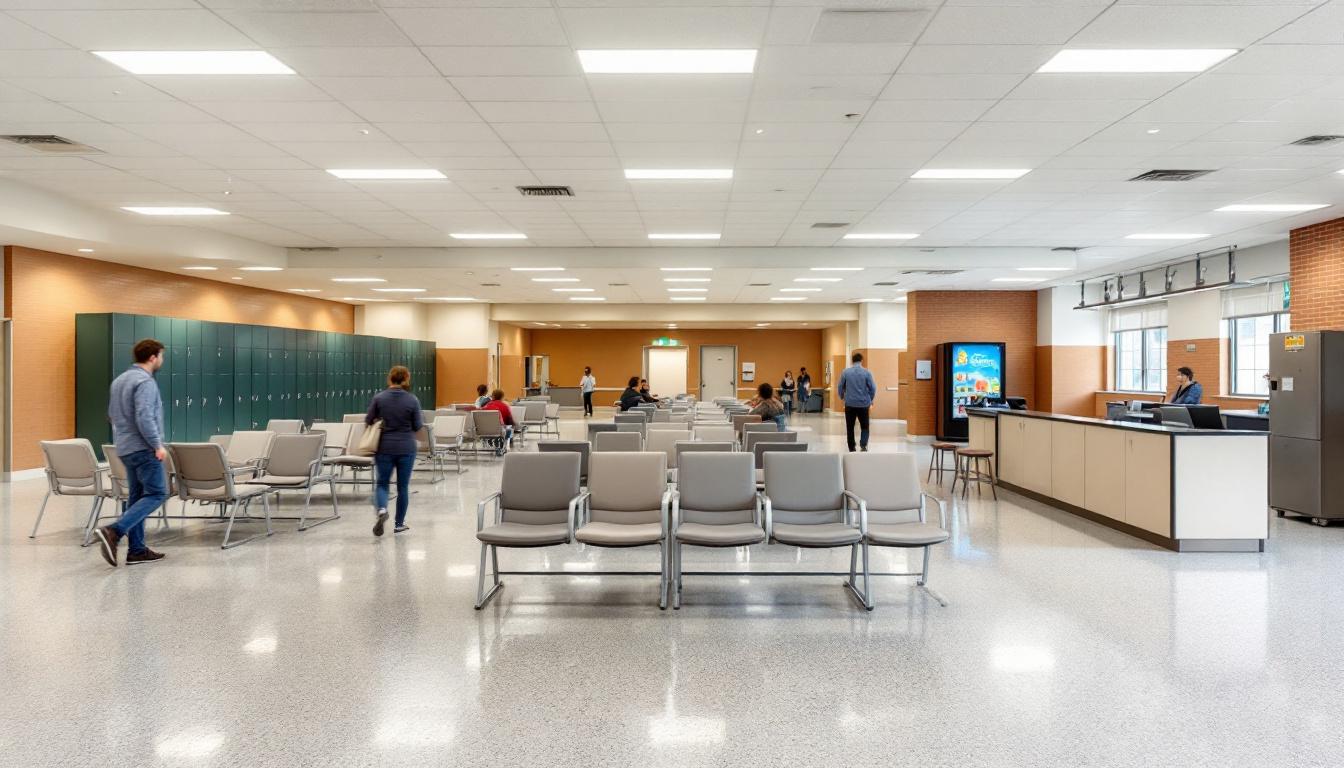
Organizational protocols and structured scheduling currently shape every aspect of life within the Howard County Detention Center, where systematic routines continue to provide predictability for the population. Daily activities typically begin early with scheduled counts and meal service, followed by programmed activities that may include educational sessions, work assignments, or recreational periods. The facility generally maintains consistent timing for these activities, though schedules can vary based on housing unit assignments and security classifications.
Housing units at the facility are typically organized to accommodate different population needs, with dormitory-style and individual cell arrangements depending on classification levels. The population usually resides in units that supply both common areas and personal space, with access to basic amenities and personal property storage. Meals are generally served in designated dining areas or housing units, with the population receiving three meals daily that meet nutritional standards. Moreover, commissary services typically allow residents to purchase additional food items and personal care products to supplement their basic provisions.
Recreational opportunities often include access to exercise areas, television viewing, and library services, which supply important outlets for physical activity and mental stimulation. Work assignments within the facility may involve kitchen duties, maintenance tasks, or cleaning responsibilities that help maintain daily operations while providing structure for participants. Whereas in-person visitation policies typically operate on scheduled days with specific time slots, the population generally maintains family connections through phone calls and correspondence. Programming schedules usually include educational classes, substance abuse counseling, and other rehabilitative services designed to support personal development during incarceration.
Ready to Connect?
Start communicating with your loved one today
Search for an Inmate
